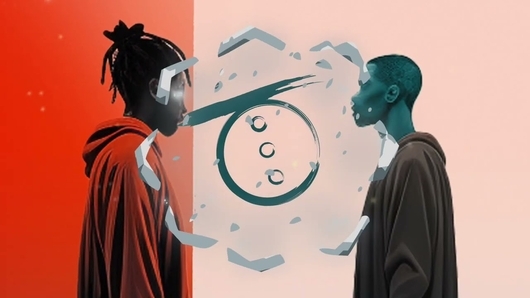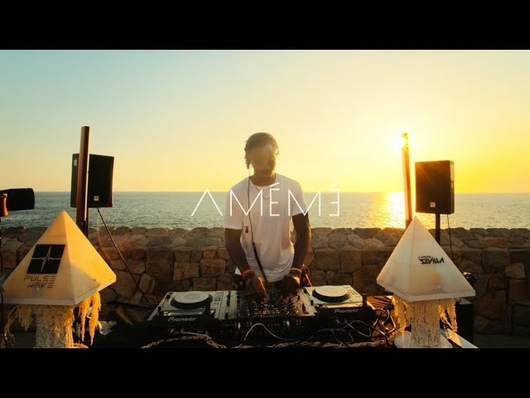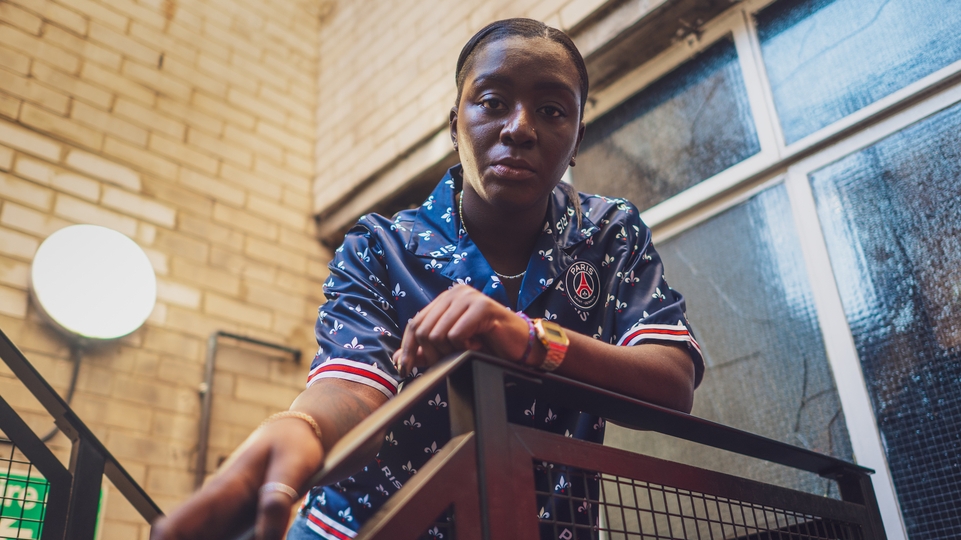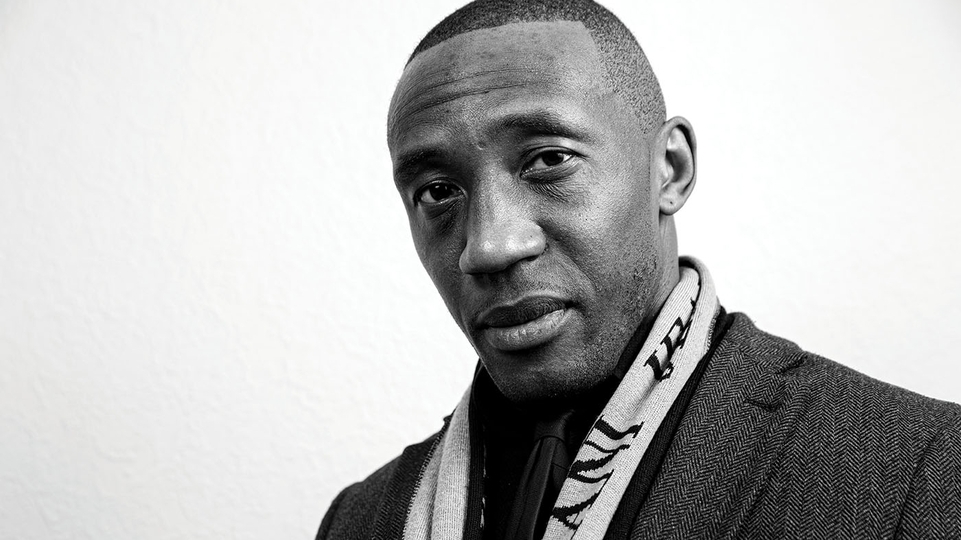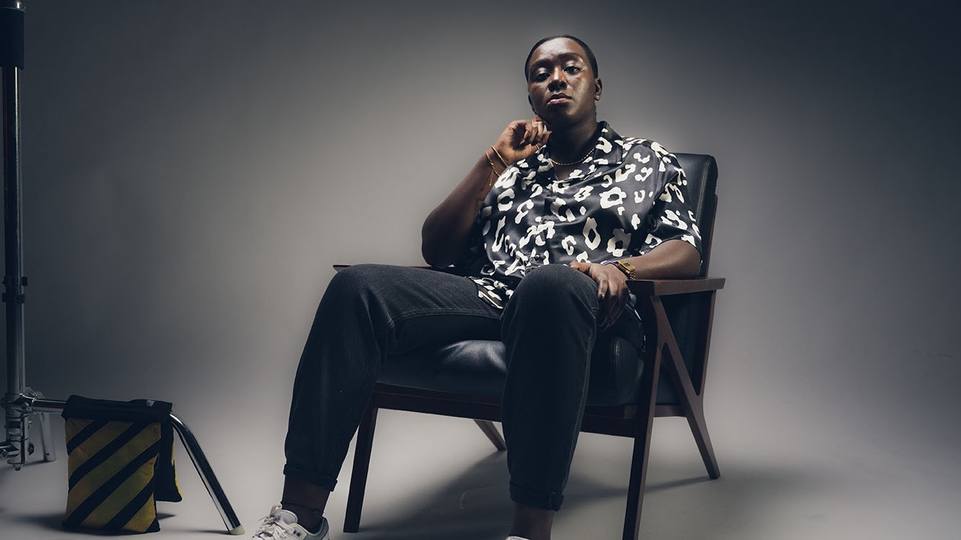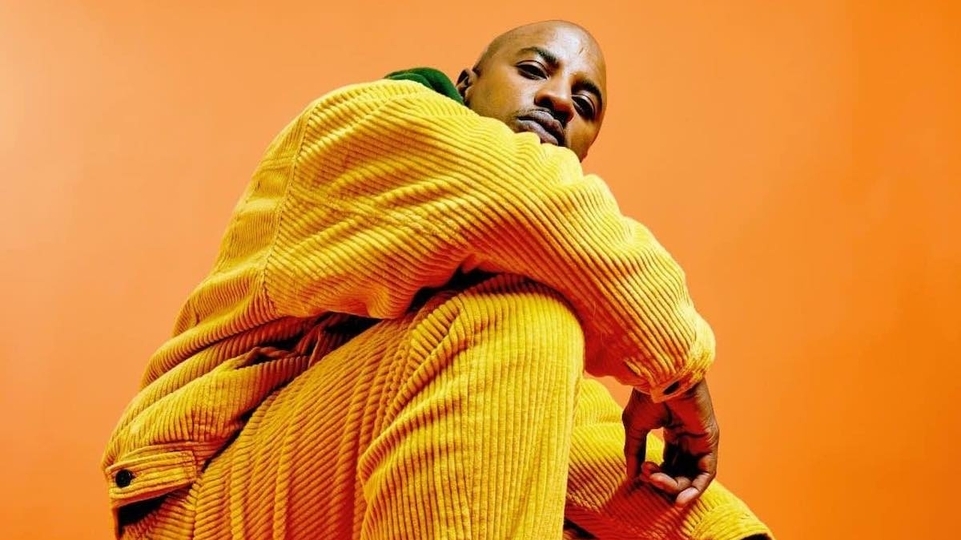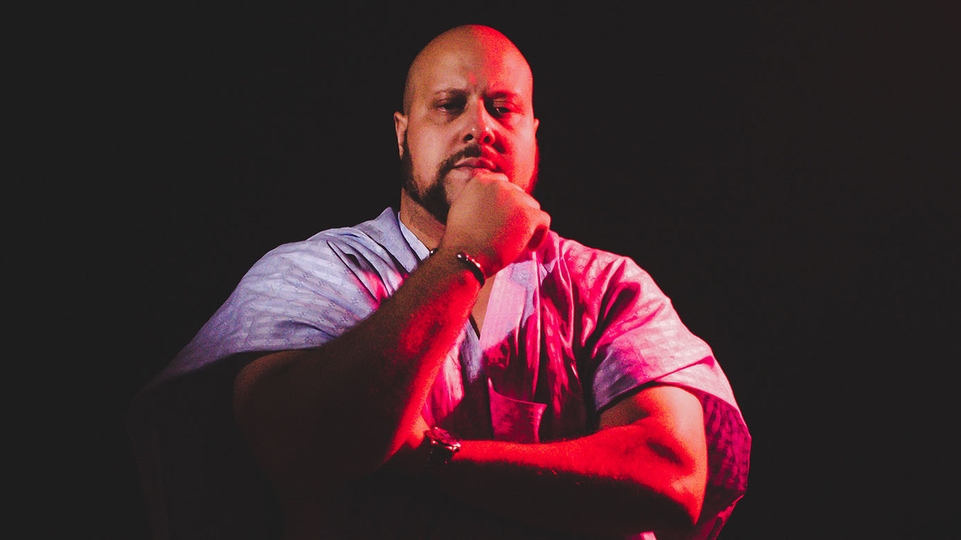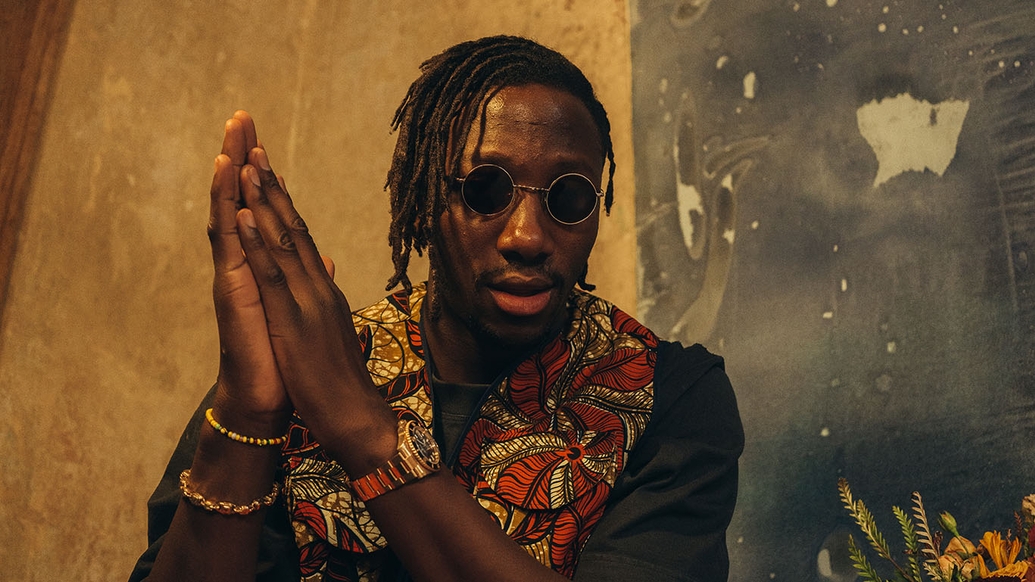
AMÉMÉ: Afro house to the world
Afro house is one of dance music’s hottest offerings, and West African artists like Benin-born AMÉMÉ are helping to proliferate the global movement. Megan Venzin links up with him on Ibiza to learn more about his life and what’s coming next for his One Tribe music and events platform
It’s after dark in Ibiza, and AMÉMÉ’s still flying high — literally. We should be sitting down for dinner right about now, but plans change. This is just how it goes: another day, another flight delay. Few know this better than the jet-setting DJs who work regularly on the island. The real ones don’t stress. The show always goes on. “It’s okay, we’re used to this,” the man of the hour calls over with unbothered cool when he eventually enters the hotel’s sliding doors. The West African producer passes off his roller board, grabs a card key, pats his pockets and gives a nod to his tour manager. “Okay, let’s go!” he says with a smile that leaves us feeling calm. Yep, he’s definitely done this before.
Over the years, the artist born Hubert Ameme Sodogandji has learned there’s little point in dwelling on what’s out of his control. But the bits he can manage — keeping a healthy sleep schedule, saying goodbye to booze, and presenting a positive attitude — well, those are different matters. By the time we arrive at an upscale Middle Eastern eatery called Laylah in the Marina district, plates are already pouring out of the kitchen. Old friends and new faces — journalists, artists, logistical staff, and promoters — are gathered in a circle, getting to know each other over tahini-drizzled morsels and an icebreaker card game.
Our subject seems well-acquainted already, doling out hugs before settling into a seat next to Ben Sterling, the tech-house DJ with whom he’ll be performing at Amnesia. The two went back-to-back in Miami earlier this year, and are reviving the vibes later tonight at Jamie Jones’ weekly Paradise residency. They haven’t spent any time discussing the game plan for their set, but it’s all good. “I usually wait for the other person to give me a little sign before I jump in,” Sodogandji says of his chilled-out b2b technique. It speaks to his observational spirit, and his tendency to carefully calculate a situation before making his next move.
In between bites and clearing others’ plates (“I just can’t sit at a messy table,” he insists), Sodogandji tells us about his multicultural upbringing and the winding road that’s made him a recurring name on Beatport’s Afro House Top 10 charts, as well as Ibiza’s mega stages. “Coming from Benin, West Africa, my journey begins from a place where I always have to educate people about where I’m from,” he says. “People generally just don’t know, and I’m not mad at that. I’m happy to be one of the ambassadors and to tell the story.”
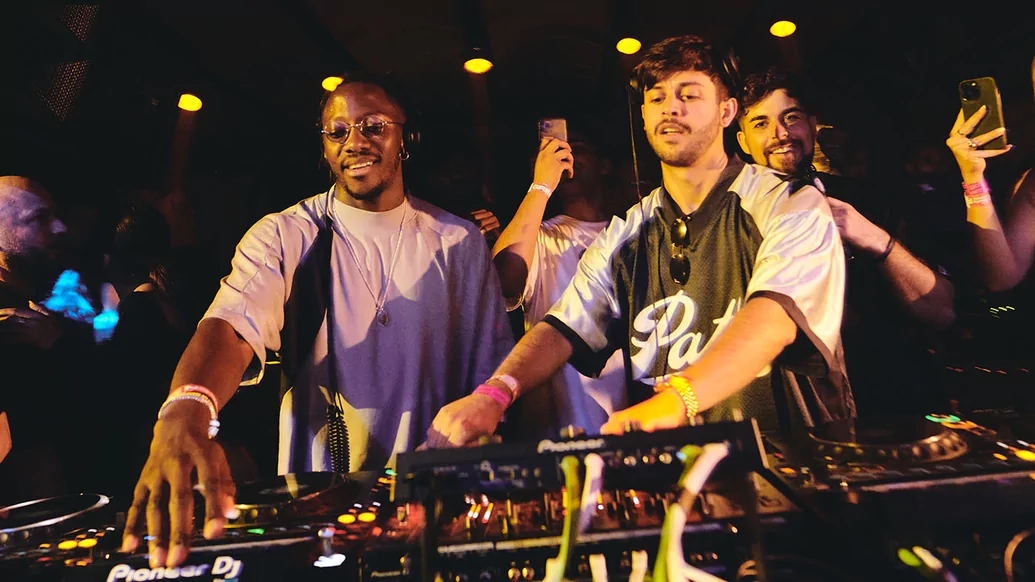
Sodogandji — which means “the thunder is about to strike” in his native tongue, Fon — grew up in the former French colony’s metropolitan centre. He spent his younger years making mixtapes, sequencing tracks from acts like the pop-R&B band, Poetic Lover, French-Congolese rap group Bisso Na Bisso, and North American wordsmiths like Nas and DMX. The effort often became competitive, as he and his siblings battled it out to see who could compile the best collection.
“My dad was strict — he warned us that nobody was allowed to touch his stereo,” Sodogandji remembers of mischievous boyhood plans. “So, we would wake up at like five in the morning. We’d close the door, and be like, ‘Okay, you’re gonna watch Dad’s door, while I record my stuff.’ We’d take turns, then if we heard him come out, we’d all run away,” he says, reenacting the scurrying dispersion that followed creaking hinges. “I think this is where my whole music selection mindset kind of came from — all those little things that you just do for whatever reason that set the tone for who you’re going to be in the future.”
He went on to perform in a hip-hop band alongside his brother, before life plans put an ocean between them. “My mother always made it clear that we would go to college in another country,” he explains. So when the time came, he set off to New York City, noting that Paris (his brother’s pick), felt too similar to where they’d grown up. “When I hear the people talking, when I go into a boulangerie and smell the bread baking there — it feels like home,” he says, as though wafting the scent toward his nose.
Brooklyn would turn out to be his springboard for success, and it’s the place that One Tribe — AMÉMÉ’s platform for events, fashion, and now music releases — calls home (these days, Sodogandji splits his time between the borough and Berlin.)
“Obviously One Tribe’s essence is Afro house, but it’s ‘Afro to the world,’ and you can hear it through some of the songs that I produced — that sound, it’s never a typical one-to-one Afro house song, it’s always like a hybrid,” he shares of the concept behind his thriving imprint, where he’s released his own hits like 2022’s ‘Power’ — the deep house slow-burner featuring Mario Reyes which recently hit one million plays on Spotify. His drum-heavy gem ‘Like That’ with French artist, Baron, is the label’s newest standout. It arrived on September 29th and features hypnotic and atmospheric rhythms set beneath spoken word vocals for a soulful and melodic effect.
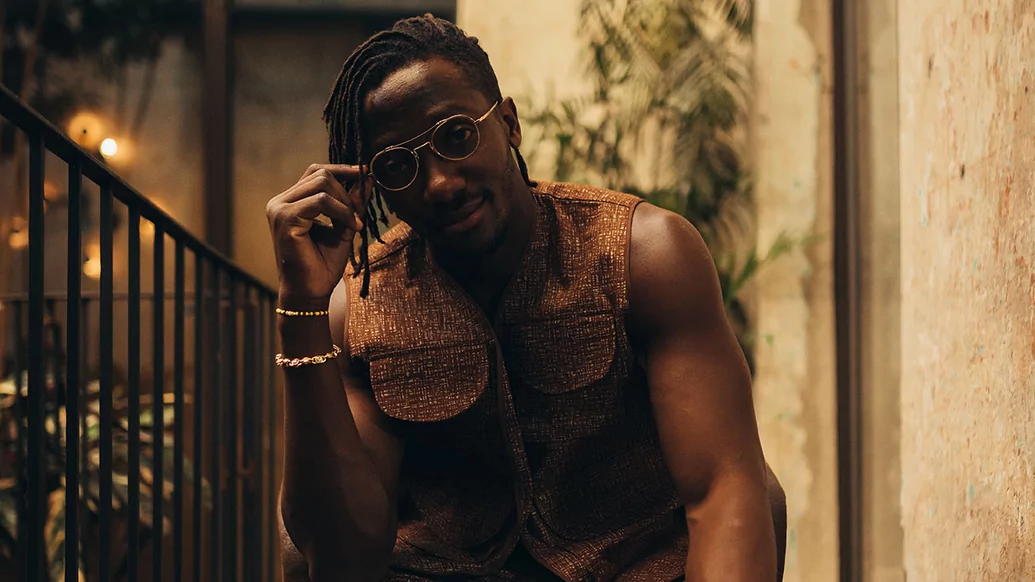
“For me, music is more than just dancing — music is education, music is history.”
In recent years, One Tribe has also helped catapult a collection of diverse cuts from names like Nhii, NenaHalena, Bontan, Kosmo Kint, Don Bello Ni and ARKADYAN. These musicians come from all over the world — places like the UK, Germany, Dubai and beyond — and represent the very kind of sonic convergence Sodogandji hopes to perpetuate through his platform. “I want to create a space where I’m stretching boundaries, so everyone can come in and feel comfortable and have a good time,” he says.
His first parties popped off at Bushwick’s House of Yes, the independent non-profit venue known for its circus-adjacent performance art, inclusive programming, and costume-based theme nights. “It was really clear that we didn’t just want to do another party,” Sodogandji remembers of planning his first Sunday event at the Brooklyn hotspot with his former creative partner. “We wanted people to walk away with a story that was more than just, ‘Oh, I got drunk tonight and the music was alright.’ We wanted them to have things that they could wear, and that could educate them about something. For me, music is more than just dancing — music is education, music is history.”
This notion inspired the first One Tribe capsule collection, which was designed by Sodogandji’s sister, a professional fashion designer, with oversight from their mother who worked in textiles for decades. Among their first creations was a limited run of reversible bomber jackets covered in ornate African prints. “We knew that we didn’t want it to be a fashion brand,” Sodogandji continues, “we wanted to use the fashion part of it as a vehicle of communication, because you have to realise in Benin, every African print that you see someone wear has a story and means something.”
One Tribe is all about storytelling, and at the core of each tale is the tight-knit community that AMÉMÉ fosters. Sodogandji first launched the brand as a means to control the narrative around his artistry, and its underlying message of unity without limitations. Now, he’s hoping to provide support to other emerging stars who share his positive vision. That said, juggling A&R with event curation, production tasks, and a packed schedule of international gigs takes a significant amount of focus.
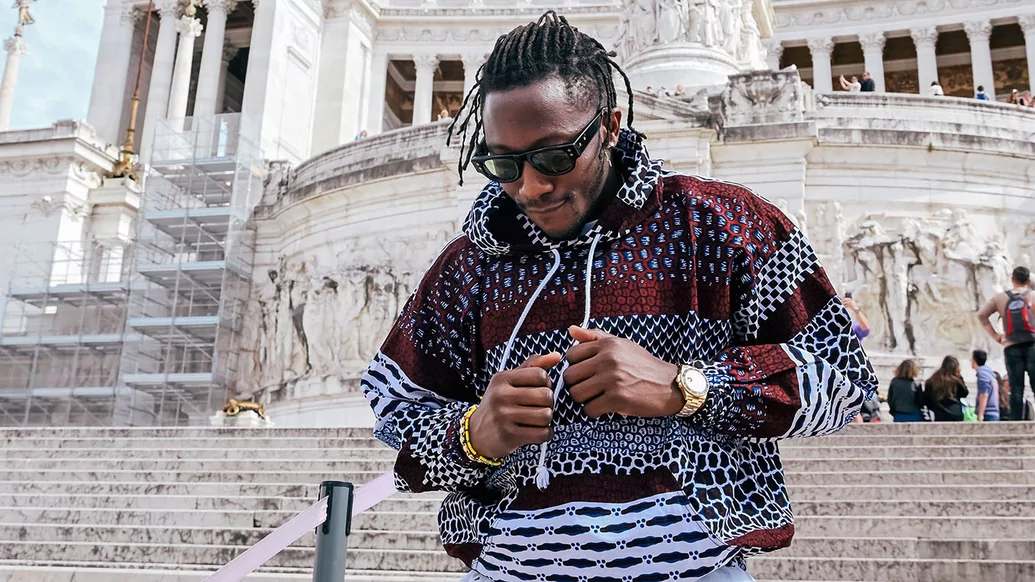
When the waitress comes around to fill our glasses with white wine, Sodogandji declines politely and asks for sparkling water instead. “Let me tell you something, I actually stopped drinking six months ago,” he shares. “For the level of execution that I want to have around everything, I just realised that I need a clear mind.” Sodogandji admits that he enjoyed imbibing socially in the past, but it no longer feels worth his time or energy. “I have the ability to project myself into the future, straight up, and I saw where I was going — I’m opening myself up to not giving the best set or not making the best decisions, and it was very clear that this could hinder what it is I’m building,” he explains candidly. “Obviously, you can’t control everything, right? I come from an operational background, and when it comes to minimising risk, it just makes me feel good knowing that surprises aren’t going to pop out of nowhere.”
Dinner is winding down, and so is the amount of time on the clock before AMÉMÉ and Ben hit the decks. “I’m an ice cream man myself, but I think we need to go,” he says, looking at his watch and making the very tough choice to skip dessert. We hop into the van before moving on to the club.
Inside Amnesia, the crowd is in peak form and the Paradise ethos is alive and well. Dancers in fantastical animal masks and bodysuits perform on platforms in the centre of the room, beneath lush tendrils of foliage and glimmering disco balls. When the duo takes the stage, there’s a swell of excitement and a noticeable shift in the low-end sounds.
The night’s selections are vast and energising, and there’s a unique volley taking place as tech-house heat gets a second ignition from a barrage of percussive stylings. Sterling’s Superchumbo-sampling groove ‘All Over My Body,’ for example, feels right at home amid Junior Jack’s ‘E Samba’ or Alex Guesta’s deep ‘Kayamba’ rework. This is more than just a melding of music — it’s a melding of minds, one from London and another from Benin, coming together to create something fresh and bold.
After the 90-minute set, we ask Sodogandji whether he wants One Tribe to have a permanent home in Ibiza. “To be honest, if you asked me this a year ago, I would have said yes, but I think this summer gave me a lot of different perspectives on how I want to run this thing right,” he shares. “What I realised is, Ibiza is dominated by a couple of massive players — the Marco Carolas, the Black Coffees, the Bedouins, the Fishers — there are like 10 guys who are crushing the market. I’ve been there, and I’ve played with those guys, but strategically I’m not trying to go into a space that is saturated.”
Instead, for his imprint’s forthcoming showcase, Sodogandji is looking toward emerging destinations where he feels like he can make a “maximum impact” with his signature events. “Tulum is really where a lot of things started for me, and it definitely has a special place in my heart. It’s like my backyard — imagine my natural sound, and you look around, you see trees, I throw down some One Tribe beats... the synergy of it is there!”
He’s clearly thought this through. There isn’t an exact date set for the first official One Tribe showcase, but it’s coming. The party doesn’t need to come together fast — it needs to come together right. “That’s a danger for people that don’t have a very well-planned vision,” he says, recognizing that the best initiatives take time to find their shape. “If they’re not flexible, they could be on a very rough path. You’re on a boat, but the wind can always go and take you somewhere else.” This is what going with the flow is all about. After all, our night in Ibiza didn’t start right on schedule, but it sure ended on a pitch-perfect note.
